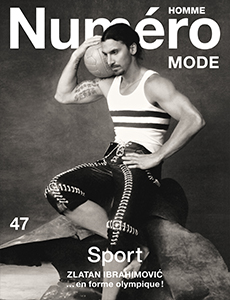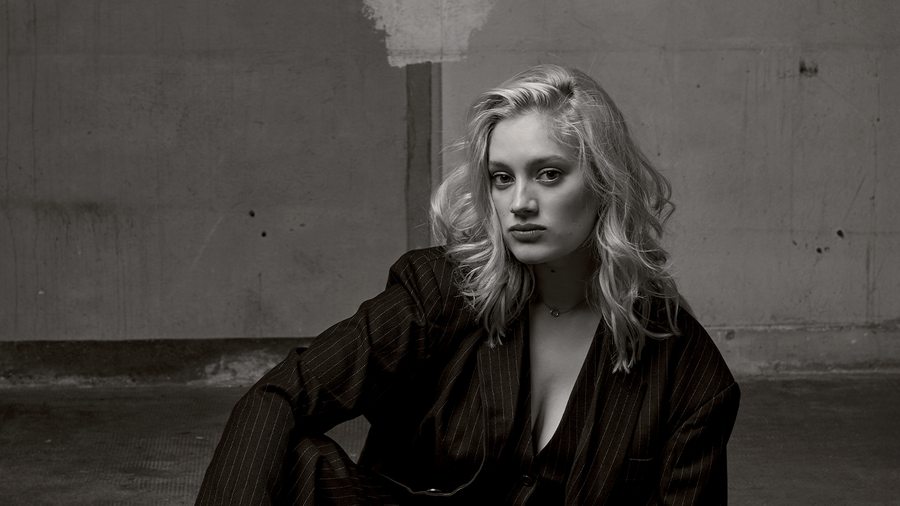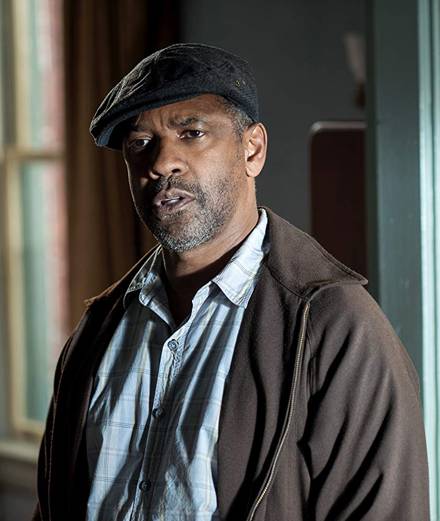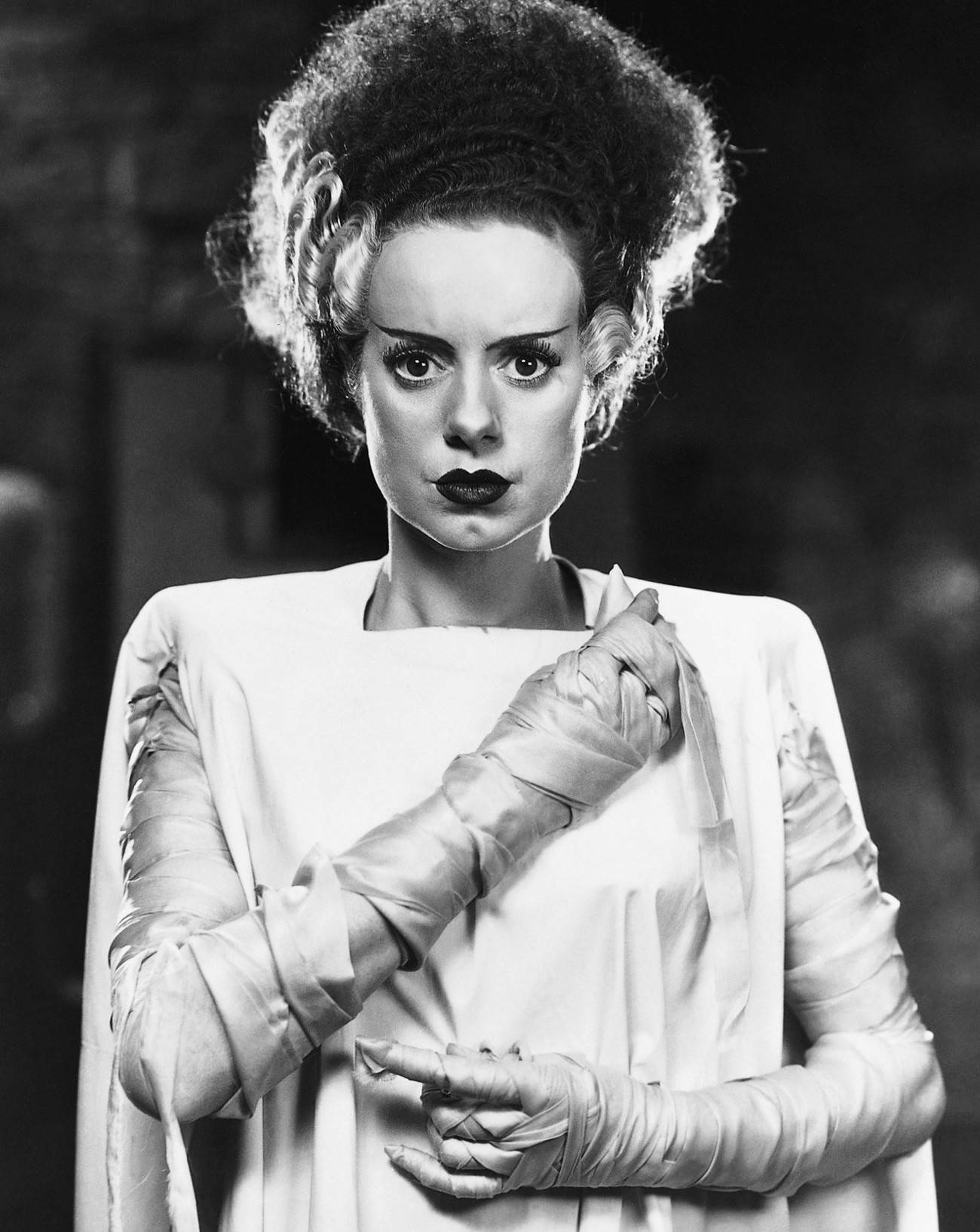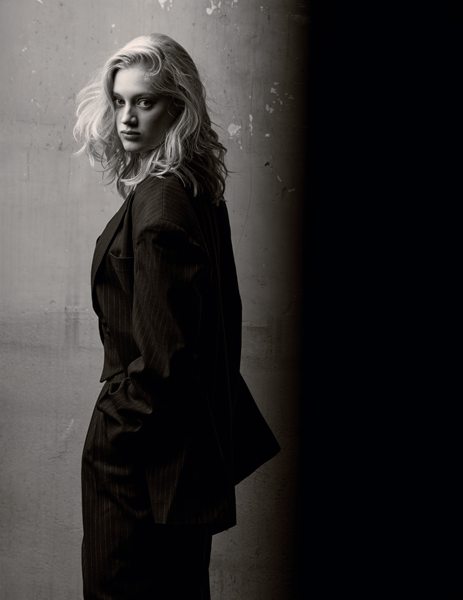

Nadia Tereszkiewicz © Luc Braquet.
Interview with Nadia Tereszkiewicz, star of the film Rosalie
After an intense hour in which she constantly sought to define her thoughts and explain her work and career in detail, so that there be absolutely no ambiguity, Nadia Tereszkiewicz ended our interview with a perhaps-involuntary touch of humour: “I hope I didn’t talk too much!” While she’s certainly not backward in coming forward, in today’s world, where public figures try to master what’s said or thought about them through a fog of vagueness, her clarity and commitment make for a very welcome change.
Those who have seen a film featuring the winner of the 2023 César for best rising female star – awarded for her role in Valeria Bruni Tedeschi’s Les Amandiers – know what I’m talking about. The lucidity of emotion that comes through in her performances resonates with audiences, as does her way of tackling roles as a form of total experience. In Stéphanie Di Giusto’s Rosalie, which comes out this spring, Tereszkiewicz plays a young woman in the 1870s with a hormonal condition called hirsutism that causes her to grow a beard as well as hair all over her body.
In the skin of this “freak,” the actor has built up the character of a rebel who is ashamed of nothing, wielding her desire in the face of the social opprobrium that seeks to constrain her. The role has both charm and depth, and, opposite Benoît Magimel (her husband in the movie), Tereszkiewicz plays with all the éclat of actors who know how to approach and test the limits and make them palpable.
But, across the 150 years that separated us, Rosalie really questioned my femininity. It was unsettling. I used my shame in my acting to the point where I was able to forget it.” - Nadia Tereszkiewicz
Though her character may have no shame, Tereszkiewicz herself was too embarrassed to go on set when she started the shoot, horrified at seeing herself in a beard. “It was precisely this feeling of shame that Valeria Bruni Tedeschi was looking for with a view to exalting it in Les Amandiers. Shame and ridicule were marvellous in her eyes, and I find a certain pleasure in exploring the shameful and the offbeat. But, across the 150 years that separated us, Rosalie really questioned my femininity. It was unsettling. I used my shame in my acting to the point where I was able to forget it. At the end of filming, I was going to the canteen in my beard!”


Nadia Tereszkiewicz © Luc Braquet.
A passion for cinema born with Valeria Bruni-Tedeschi's Les Amandiers
There’s never any indifference when Tereszkiewicz is involved. She arrived in the movie business at a key period, fate having decided that her career would be synchronous with #MeToo. Indeed the release of Les Amandiers, her 2022 breakthrough, was steeped in controversy when her main partner in the film, Sofianne Benacer, was charged with rape and domestic violence after ex-girlfriends went to the police. “All the controversy at the time of the film’s release was enormously perturbing,” she remembers. “It was very violent.” Because, in addition to the police investigation, the director was attacked for her working methods, which some considered excessive in terms of the emotional toll they took on the actors.
But for Tereszkiewicz, “The film changed my emotional and professional life. Thanks to Valeria, I said to myself, ‘Ah, acting is an imperative.’ While movies are not a question of life or death, you can’t act if there’s nothing at stake. If you act, you must abandon yourself to it. Doing that film was a trigger moment for me. The César I won for the performance also encouraged me. Seeing our work appreciated and moving on to the next project was an unforgettable experience.” Since then, in François Ozon’s Mon Crime and Robin Campillo’s superb L’Île Rouge, Tereszkiewicz has confirmed yet further her potential as a promising young actor who is a perfect fit for an open and ambitious type of cinéma d’auteur.
Nadia Tereszkiewicz was predestined for a career as a dancer
Ten years ago, it all looked rather different. Living in Mougins with her Finnish and French parents, who had no connection with the arts, she was studying at the Rosella Hightower dance school. “I started there at age four, and by 11 I was on campus every day from 7.00 am to 10.00 pm. Through the school, I travelled all over Europe. Becoming a dancer was my identity – I could imagine nothing else. In parallel, I became an avid reader. In a certain way, it all came out of that.”
Her adolescence was a mix of pas de deux, Boris Vian, and Dino Buzzati, an author whose “novella about a lift that never stops going down” particularly struck her, “as a metaphor for hell.” After her baccalaureate, she applied to the school of the Canadian Ballet in Toronto, but all of a sudden she was struck by the realization that it wasn’t the right path for her. “I understood that I was good enough to be accepted but not good enough to carry on at the school.” Once she’d come to that realization, the break was final.
In cinema, you’re chosen for your identity. If someone else gets the part, I tell myself the film needed them.” Nadia Tereszkiewicz
Back in France, Tereszkiewicz began studying literature, sat the exam for the École Normale Supérieure – which she just missed passing – and then enrolled in the Free Class at the prestigious Cours Florent drama school. “I discovered theatre during my school years and it became a passion. Chekhov, in particular, connected me to a desire to experience things that I had the impression I hadn’t experienced in real life. I wanted to try my luck as an actor.”
The girl who had already played a dancer in Stéphanie Di Giusto’s first film began to take on other secondary roles, until, in 2020, the Canal + series Possessions provided her with her first big break.


Nadia Tereszkiewicz © Luc Braquet.
A captivating young actress
After that, nothing stopped her. “When I started doing movies, something clicked in my head. I could no longer compare myself to others, unlike what I’d know in the dance world, where we were constantly judged. In cinema, you’re chosen for your identity. If someone else gets the part, I tell myself the film needed them.”
When I point out to her that, on the contrary, a lot of female actors have felt belittled by the male gaze and the various manipulations they were subjected to, Tereszkiewicz nuances her thought. “Obviously I’m not saying that everything is just dandy in the movies! I’m talking about my personal experience. For me, cinema came after dance, a world that’s violent and magnificent. Even if I gave it up with no regrets, my emotional source is still linked to dance. Pina Bausch is my greatest inspiration. For me Café Müller [a Bausch piece from 1978] is the greatest artwork there is. When I was five or six my father took me to see it. For the first time, I saw him cry. I didn’t understand why. I saw it often after that, and one day I understood. Pina’s work devastates me.”
This admission helps us understand better the source of the emotion that Tereszkiewicz transmits in her acting – even when she’s doing comedies. For whatever genre she tackles, she always does it with enormous thought and feeling. At 27, she’s on the verge of making it very big. Exactly how far would she be prepared to go to further her career? “Earlier I talked about abandoning myself to a role, but there are nonetheless limits with respect to both my physical and mental health. I can put on 5 kilos for a film, but I’d never put on 20. And I’ll avoid all toxic situations. I’m lucky to belong to a generation that’s changing things.”
Stéphanie Di Giusto, Rosalie, out on 10 April.
